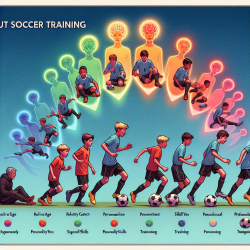In a rapidly evolving world of science and technology, international collaboration has become indispensable. The recent research paper, A framework and resource for global collaboration in non-human primate neuroscience, presents a comprehensive framework for fostering global partnerships in non-human primate (NHP) neuroscience research. As practitioners, it is essential to embrace the outcomes of this research to enhance our skills and drive meaningful advancements in our field.
The research underscores the importance of ethical and regulatory standards in NHP neuroscience. It assesses the variability and similarity in NHP welfare regulations across 13 countries, spanning Asia, Europe, and North America. This effort aims to promote a solution-oriented dialogue and support scientific collaborations across borders.
Key Takeaways for Practitioners
The framework proposed in the research provides several actionable insights for practitioners:
- Understand and Align with Ethical Standards: Familiarize yourself with the ethical and regulatory protocols of different countries. This knowledge will help you navigate the complexities of international collaborations and ensure compliance with global standards.
- Promote the 3Rs (Replacement, Reduction, Refinement): Incorporate the principles of the 3Rs in your research. These principles are fundamental to promoting animal welfare and enhancing the quality of scientific outcomes.
- Leverage Shared Resources: Utilize the tabulated resource provided in the research to access information on NHP welfare regulations. This resource can be a valuable tool for planning and executing collaborative projects.
- Engage in Harm-Benefit Analysis (HBA): Adopt the HBA approach to assess the ethical implications of your research. This analysis helps balance the potential harm to animals against the anticipated benefits to society.
- Foster Open Communication: Engage with colleagues, institutions, and stakeholders to share knowledge, methodologies, and resources. Open communication is key to successful collaborations and advancing scientific knowledge.
Encouraging Further Research
The framework also highlights the need for ongoing research and dialogue to address the challenges of international collaboration. Practitioners are encouraged to:
- Stay Informed: Keep abreast of the latest developments in NHP neuroscience and international regulations. Continuous learning is essential for adapting to new challenges and opportunities.
- Participate in Global Networks: Join international working groups and networks to share insights and collaborate on projects. These platforms provide opportunities for cross-disciplinary learning and innovation.
- Advocate for Ethical Research: Promote the importance of ethical research practices in your professional community. Advocate for policies that support responsible and humane research involving NHPs.
Conclusion
The research paper provides a robust framework for enhancing global collaboration in NHP neuroscience. By implementing the outcomes of this research, practitioners can improve their skills, promote ethical standards, and contribute to scientific advancements that benefit society.
To read the original research paper, please follow this link: A framework and resource for global collaboration in non-human primate neuroscience.










